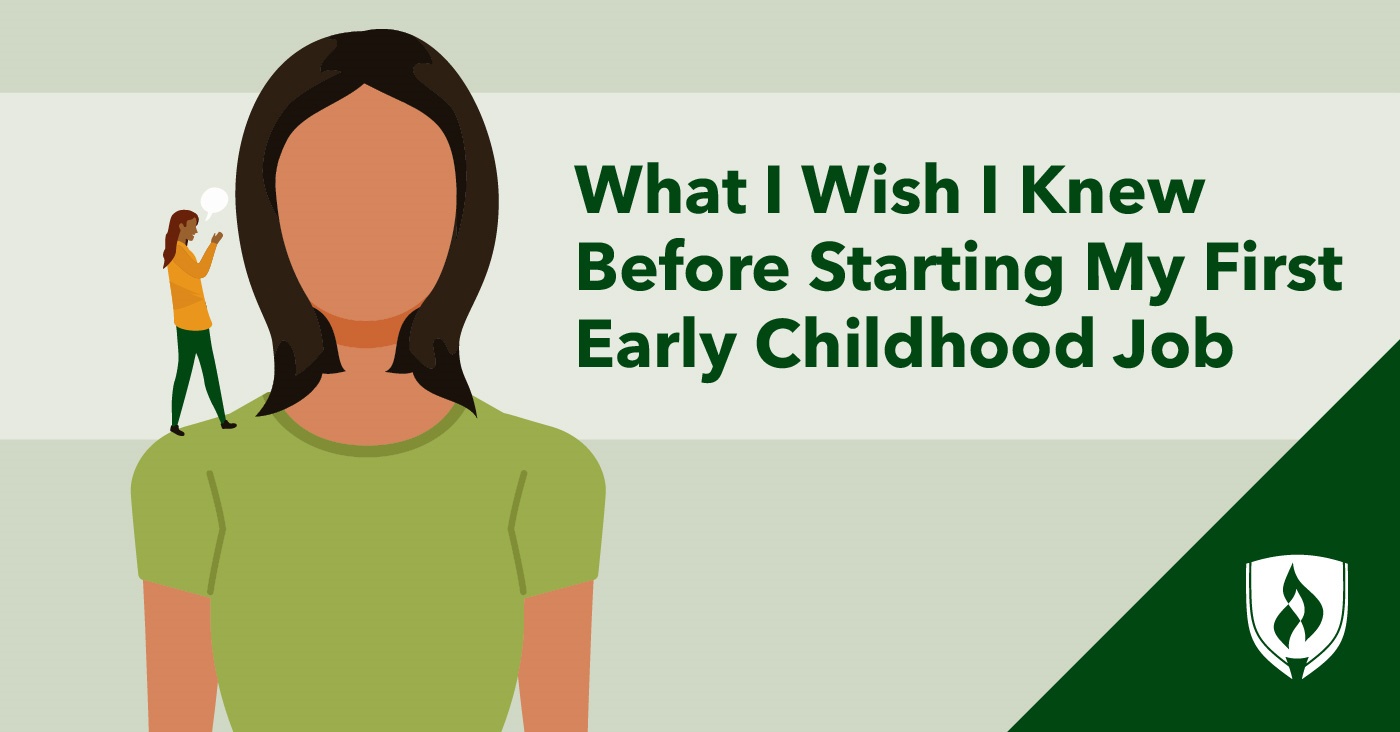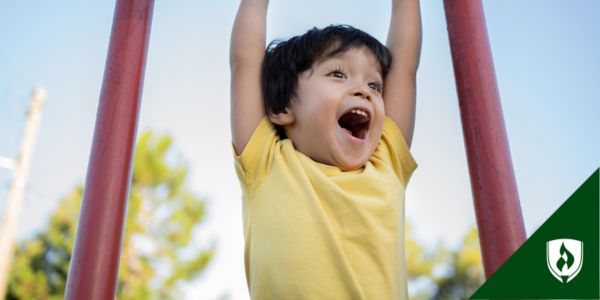There’s a lot more to most careers than you can see from the outside looking in. When it comes to exploring an early childhood job, you might think you know what to expect. You’ll work with young children, caring for all their basic needs and using best practices to help them reach developmental milestones.

But is that really all there is to working in early childhood education (ECE) careers?
All jobs come with a surprise or two for those who are new to the field, and early childhood careers are no exception. You’ve got your eye on an early childhood job, but first you need to make sure you know what it’s really like to work in this rewarding field.
We went straight to the source, asking real-life ECE professionals what they wish they’d known before landing their first early childhood job. Learn from their experiences so you aren’t caught off guard your first day on the job! Additionally, understanding the principles of social and emotional learning (SEL) is essential in the field of early childhood education. Explore our article on "What Is SEL?" to gain insights into this crucial aspect of fostering child development and well-being.
I wish I knew that . . .
1. Children’s behaviors aren’t personal
There will always be times when young children don’t behave the way adults wish they would. Hitting, shouting and even biting are all normal responses for young kids to have as they work on self-regulation and communication skills.
For new ECE professionals, however, it can be tough to remember not to take it personally when children show these behaviors. “It took me some time to realize that the child is not hitting and kicking me because they don’t like me,” says Michelle Anderson, early childhood provider and founder of Generations Soar.
Although Anderson’s college courses taught her that these behaviors are to be expected, it didn’t really sink in until she was working in the field. It helped her to remember that a child’s behaviors are a form of communication. “They could have been trying to tell me something and were unable to verbalize it,” Anderson says.
2. It’s not all about kindergarten readiness
Kindergarten readiness is a hot topic in the ECE field, especially as parents face growing pressure to make sure their children don’t fall behind in their education from day one. However, ECE professionals are just as concerned with children’s emotional development as their academic growth.
“The biggest lesson I learned is that teaching preschool is not only about preparing students for kindergarten but also helping them to be resilient and to help prepare them for life,” Anderson says.
Don’t enter the ECE field expecting to rely on worksheets and academic activities. Much of early education focuses on giving children the skills they need to succeed in all aspects of life, such as social-emotional skills, self-regulation and communication. “Remember that what we teach them goes beyond early childhood and into adult life,” Anderson says.
3. Working with parents is a big part of the job
Don’t make the mistake of thinking that working with kids means you’ll never have to deal with adult interaction! ECE professionals work with parents and families just as much as the children in their care. In fact, positive parental involvement can have a big impact on a child’s education.
“I wish I had invested more time in learning about parent communication,” says Ria Simon, early childhood educator and community ambassador at HiMama. Simon was initially shy about creating relationships with parents, but she quickly realized how important this step was to serving the children she worked with.
ECE professionals need to keep the lines of communication open with families, both to understand more about a child’s home life and to share resources or concerns with parents. Simon advises aspiring ECE professionals to focus on growing their communication skills as much as possible. “Through time and experience, I learned better techniques of communication and how to approach different situations with parents.”
4. Some children have experienced trauma
“While I was in college, I thought my job was to sing songs, play with playdough, read stories and prepare children for kindergarten,” Anderson says. “I did not think about the trauma and other challenges that children would have when coming into the classroom.”
The tragic reality is that many ECE professionals will experience the challenge of working with a child who has already experienced trauma in the early stages of their life. This can present barriers to building trusting relationships between care providers and children, as well as lead to challenging classroom behaviors or difficulty learning.
As tough as it can be to work with a child who has experienced trauma, ECE providers also get to experience the reward of being advocates for these children and potentially even recognize and stop ongoing abuse. “Teachers are a safe person for a child who may have experienced trauma,” Anderson says. “I never considered how important early childhood educators really are.”
5. Not every day will be fun
Working with children can be a rewarding, joyful career—but that doesn’t mean every day will be a walk in the park. The ECE field comes with ups and downs just like any other job. Children will display difficult behavior, parents will be upset or you’ll have to adapt to a change in your setting’s policies.
“There will be times when you question why you are there, and there will be days that you are high on life,” Simon says. But ECE professionals have something workers in many other fields don’t: a strong motivation to keep going even on the tough days.
“You are there for the children.” Simon says. Whether a problem is due to children’s behaviors, issues with parents or conflicts with coworkers, she urges ECE professionals to do what they can to improve the situation. “Do not be afraid to ask questions or stand up to be heard. Your voice does matter!”
6. You’ll grow to love the children in your care
Most people considering the ECE field have a natural love for children—but you might still be surprised by how attached you become to the kids you work with on a daily basis.
Anderson realized just how much her students meant to her when she found out they would not be returning to school during the COVID-19 pandemic. “My heart broke. I never thought I would be so sad about abruptly ending the school year and not being able to properly say goodbye.”
No child will be in your care forever. Children will leave your childcare setting for any number of reasons, including just plain growing up. But it’s not all sad! The bond that develops between ECE providers and children is one of the best parts of the job. You can end each day knowing that you’re positively impacting the futures of these children who mean so much to you.
The road to your early childhood career
Working an early childhood job certainly comes with its share of surprises! But you don’t have to walk in the door on day one completely unprepared.
ECE training is designed to give you the education and skills you need to handle any event that arises while working with young children—even unexpected ones. Learn more about your options in this career field with our articles “What Can I Do with an Early Childhood Degree?” and "What Can You Do With an Early Childhood Education Certificate? Exploring Your Options".




